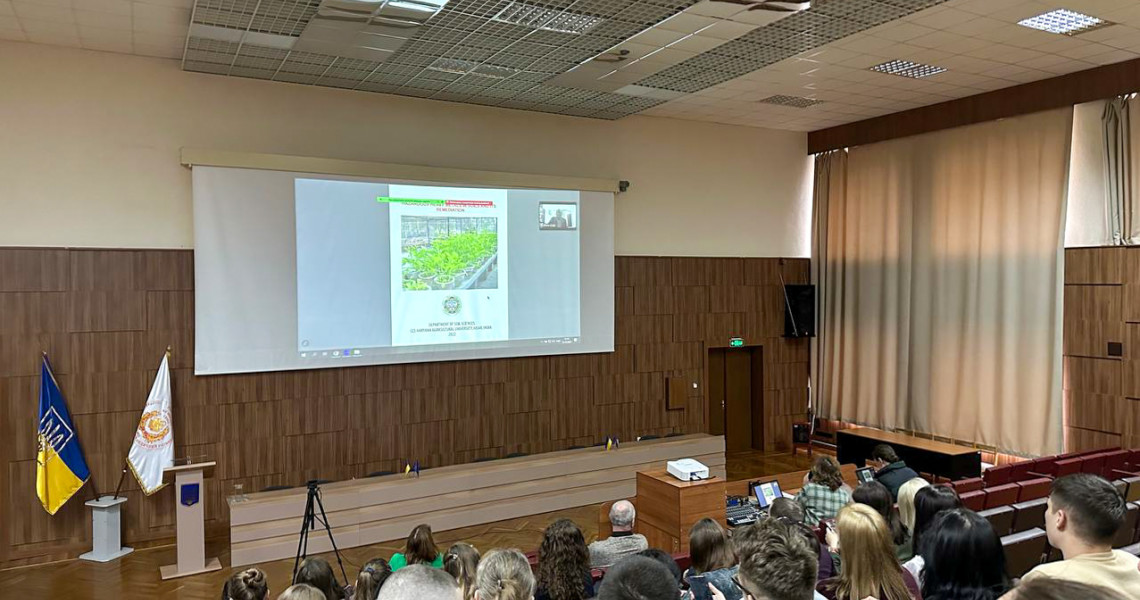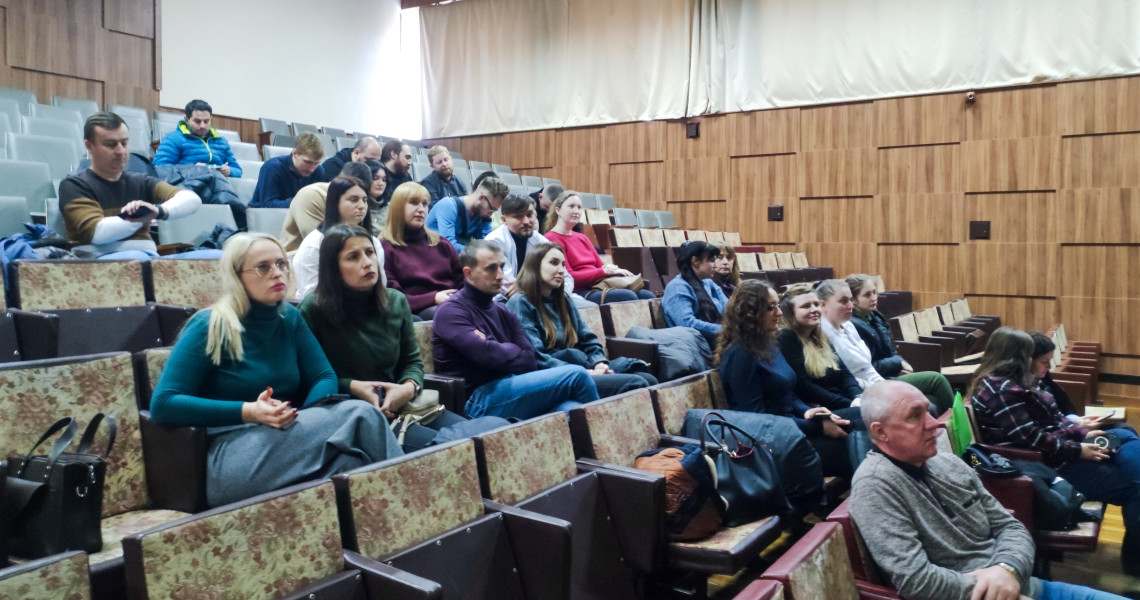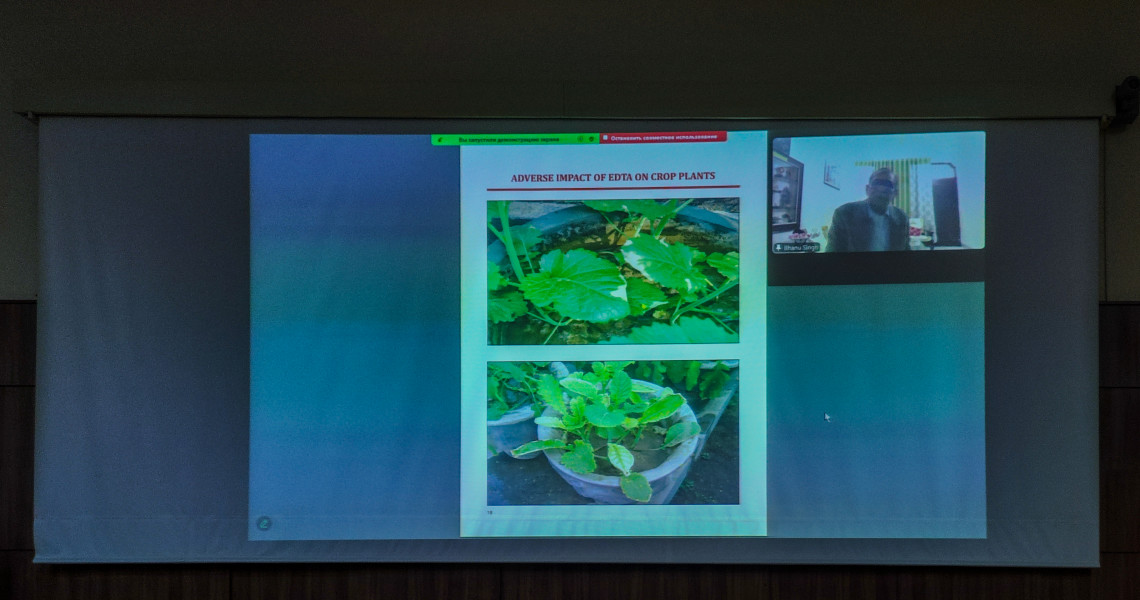Нині медичний світ тримається на тріаді: освіта, наука й охорона здоров’я. Дослідження заради дослідження нікому непотрібні, вони повинні мати практичне втілення і конкретні результати.
Саме трансляційній медицині, котра передбачає якнайшвидше перенесення теоретичних розробок у сферу практичного застосування, належатиме провідна роль у розвитку біомедицини протягом найближчих десятиліть. Трансляційна медицина визначає оптимальні механізми впровадження найбільш значущих досягнень фундаментальної науки в клінічну практику з метою якнайшвидшого вирішення актуальних проблем клінічної та профілактичної медицини. З такою метою до освітньо-наукових програм підготовки докторів філософії у Полтавському державному медичному університеті за ініціативи гаранта програми «Медицина» професора Ігоря Кайдашева та завідувачки кафедри внутрішньої медицини № 3 з фтизіатрією доцентки Оксани Борзих включено освітній компонент «Трансляційна медицина».
Освітній компонент розроблено для широкого кола молодих науковців – для здобувачів ступеня доктора філософії з медицини, стоматології, педіатрії, а також для всіх охочих курс доступний на освітній платформі закладу. Особлива увага у курсі приділяється поглибленому вивченню методів використання нових знань в клінічній практиці, на перенос клінічних спостережень і питань у наукові гіпотези для перевірки в клінічних умовах. Викладання компонента у нашому закладі узгоджується з баченням європейського наукового товариства, яке визначає трансляційну медицину як «міждисциплінарну гілку біомедичної області, що підтримується трьома основними стовпами: навколо кабінету лікаря, біля ліжка хворого, та у співтоваристві». Для обговорення передових наукових досліджень у галузі біомедицини у науковому співтоваристві здобувачами, доценткою Оксаною Борзих організовано бінарну лекцію за участю провідного фахівця з питань впливу важких металів та навколишнього середовища на стан здоров’я людині професора Бхану Панвара, якій є знаним спеціалістом у світі з питань вивчення наук про ґрунт та навколишнє середовище» (CCS, Haryana Agricultural University, Hisar, Індія). Темою лекції стала проблема небезпечних важких металів у ґрунтах та їх рекультивація. Лектор детально зупинився на характеристиці забруднення ґрунтів, методології оцінки ризику та фіторемедіаційних технологіях. Своїми висновками він викликав жваву дискусію серед аспірантів і викладачів, зокрема, усі цікавилися можливостями запобігання впливу важких металів на стан здоров’я людини з урахуванням останніх досягнень в цьому напрямку.
Такий формат вивчення окремих розділів чи тем програм аспірантури є надзвичайно пізнавальним та ефективним з огляду на міжнародну співпрацю, вивчення досвіду відомих вчених у галузі, інтеграцію у світовий простір та вдосконалення навичок англомовної наукової комунікації.
Дякуємо шановному гостеві за натхненну лекцію та організаторам – за надану можливість молоді долучитися до міжнародної наукової спільноти!
Acquiring new knowledge and strengthening international collaboration
Currently, the medical world is built on the triad of education, science and healthcare. Research for the sake of research is of no use; it must have practical applications and deliver concrete results.
In this regard, translational medicine, which emphasizes the rapid transfer of theoretical developments into practical applications, will play a leading role in the development of biomedicine over the coming decades. Translational medicine focuses on identifying optimal mechanisms for implementing the most significant achievements of fundamental science into clinical practice to address pressing issues in clinical and preventive medicine as quickly as possible.
With this goal in mind, an educational component on "Translational Medicine" has been introduced into the educational and scientific training programs for PhD students at Poltava State Medical University. This initiative, spearheaded by the program guarantor for "Medicine," Professor Ihor Kaidashev, and Associate Professor Oksana Borzykh, Head of the Department of Internal Medicine No. 3 with Phthisiology, reflects the importance of translational approaches.
The educational component is designed for a broad audience of young researchers, including PhD students in medicine, dentistry, and pediatrics. Additionally, the course is available to all interested individuals via the university's educational platform. The course places particular emphasis on advanced methods for applying new knowledge in clinical practice and translating clinical observations and questions into scientific hypotheses for testing in clinical settings.
The course aligns with the vision of the European scientific community, which defines translational medicine as "an interdisciplinary branch of the biomedical field supported by three main pillars: around the doctor’s office, at the patient’s bedside, and within the community."
To discuss cutting-edge biomedical research within the scientific community, Associate Professor Oksana Borzykh organized a dual lecture featuring Professor Bhanu Panwar, a leading expert in the impact of heavy metals and environmental factors on human health. Professor Panwar, renowned worldwide for his expertise in soil and environmental sciences (CCS Haryana Agricultural University, Hisar, India), delivered a lecture on the problem of hazardous heavy metals in soils and their remediation.
The lecture explored topics such as soil contamination, risk assessment methodologies, and phytoremediation technologies. Professor Panwar’s insights sparked lively discussions among postgraduate students and faculty, with particular interest in strategies to prevent the harmful effects of heavy metals on human health, taking into account the latest advancements in this field.
This format of studying specific sections or topics within postgraduate programs is exceptionally informative and effective. It promotes international collaboration, the exchange of experiences with prominent scientists, integration into the global scientific community, and the enhancement of English-language scientific communication skills.
We extend our gratitude to our esteemed guest for his inspiring lecture and to the organizers for providing young scientists with the opportunity to connect with the international scientific community!








